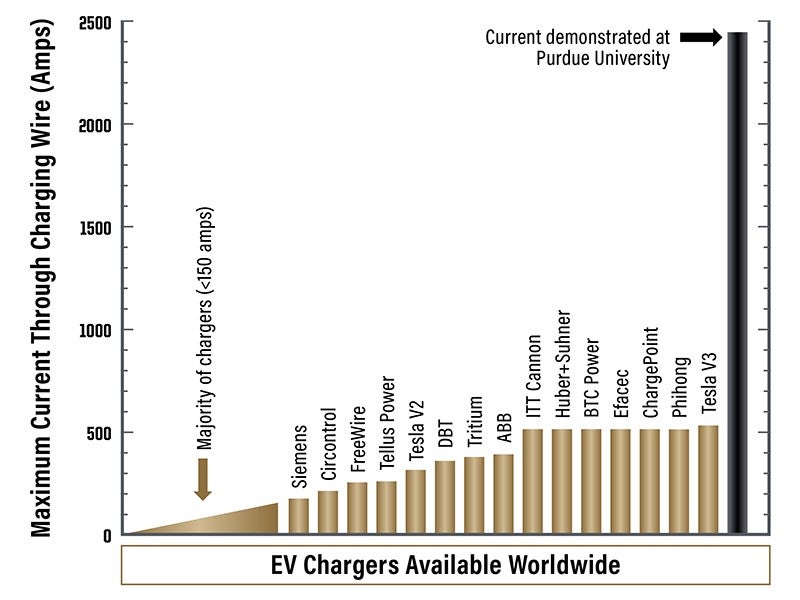Electric car charging in just 5 minutes achieved with ‘unprecedented’ Nasa tech
New technology is capable of delivering 4.6 times the current of the fastest electric car chargers on the market

An experimental cooling technique developed by Nasa engineers for use on the International Space Station has been adapted for electric cars to massively reduce the time it takes to charge their batteries.
The complex heat transfer system was originally developed to maintain proper temperatures in space, however a team of researchers discovered that the technology could also have applications on Earth.
The heat generated from charging powerful lithium-ion batteries in electric vehicles means that chargers are currently limited to around 30 amperes for at-home chargers, and up to 350 amperes for “fast charging” stations.
This results in charge times ranging from around 20 minutes to several hours – much longer than the time it takes to refill a fuel-powered vehicle.
The new technique, known as “subcooled flow boiling”, is capable of delivering 4.6 times the current of the fastest available electric car chargers on the market, which would allow charge times of less than five minutes.
A team from Purdue University in the US, sponsored by Nasa’s Biological and Physical Sciences Division, used the technique to develop a Flow Boiling and Condensation Experiment (FBCE) to safely cool cables carrying high charges.

“This technology may make owning an electric-powered car here on Earth easier and more feasible,” Nasa noted in a blog post.
“Application of this new technology resulted in unprecedented reduction of the time required to charge a vehicle and may remove one of the key barriers to worldwide adoption of electric vehicles.”
Purdue University is currently seeking additional industry partners to continue the technology’s development.
Join our commenting forum
Join thought-provoking conversations, follow other Independent readers and see their replies
Comments
Bookmark popover
Removed from bookmarks